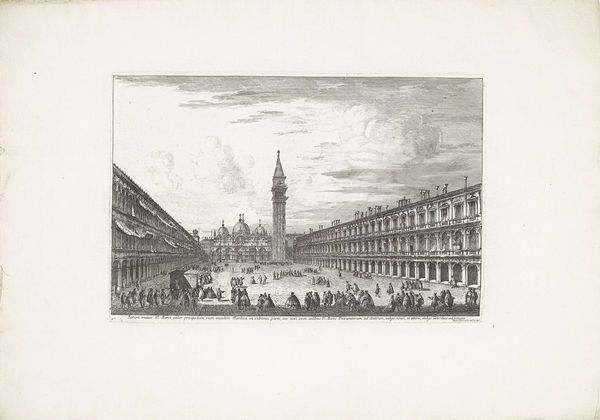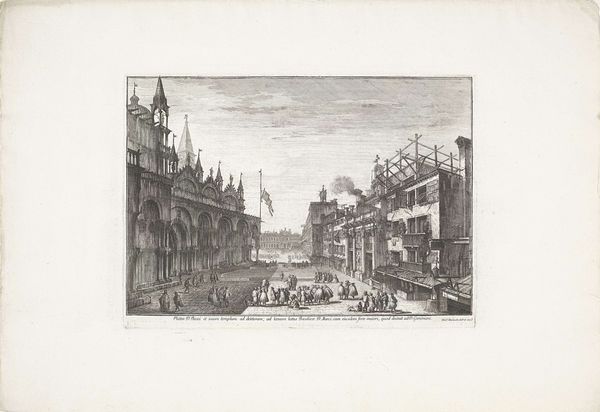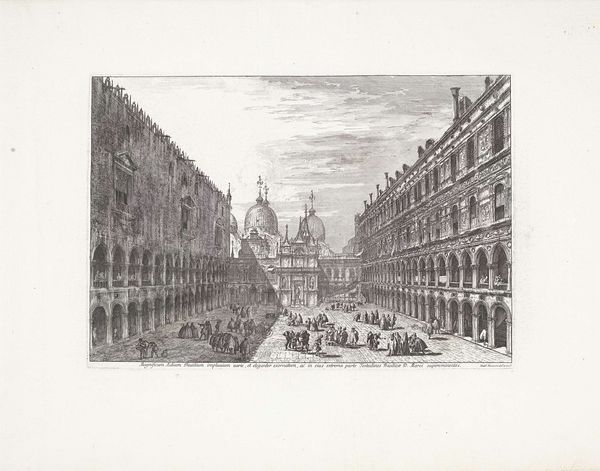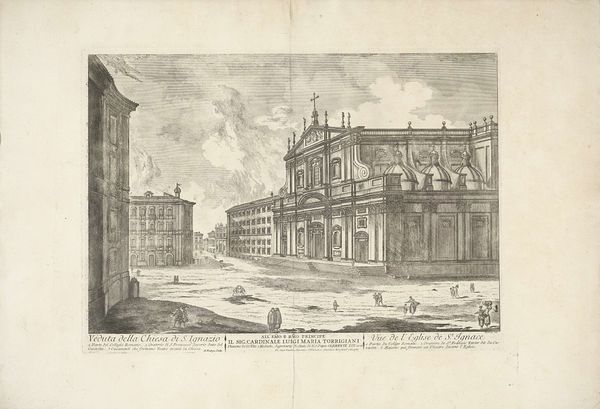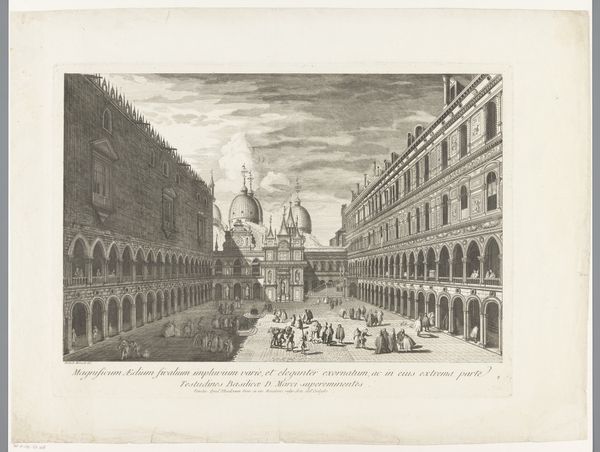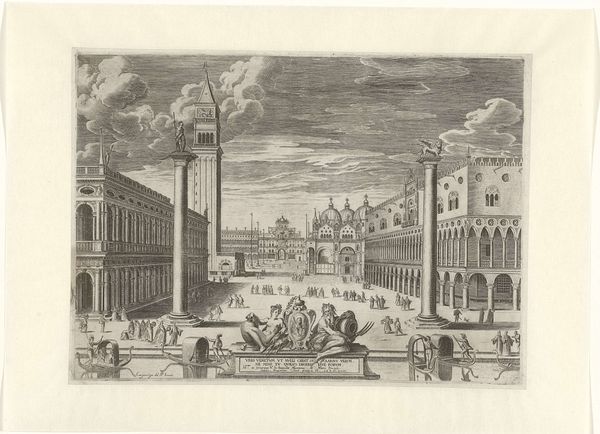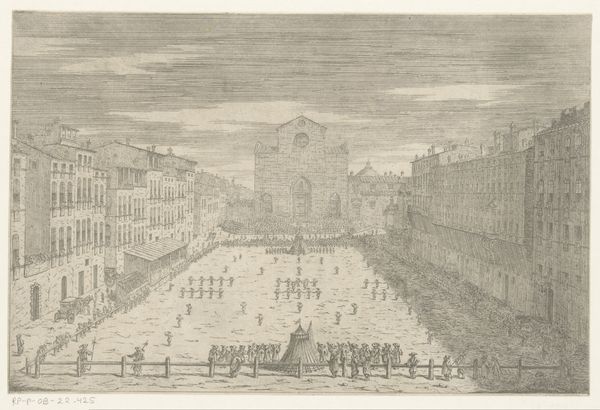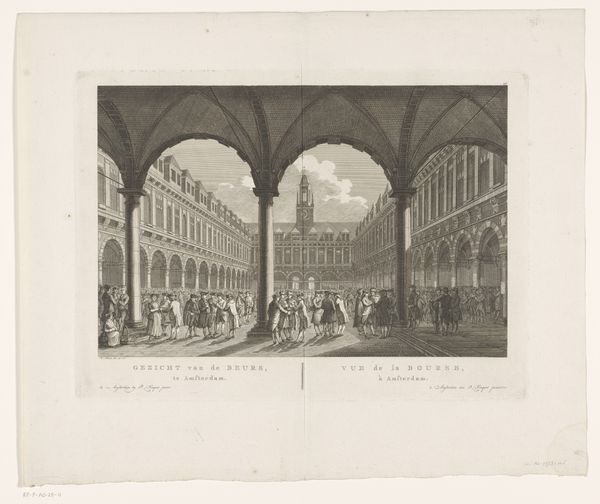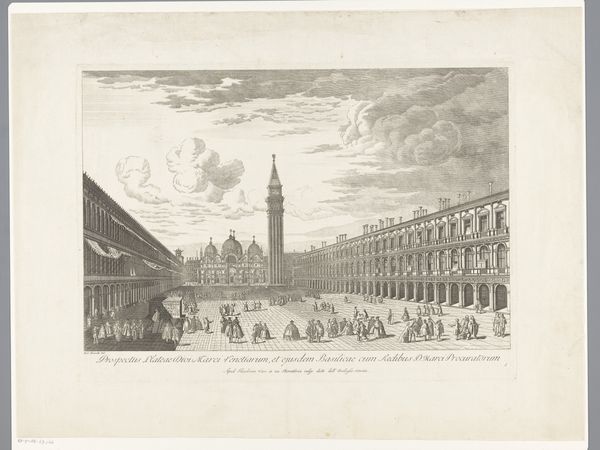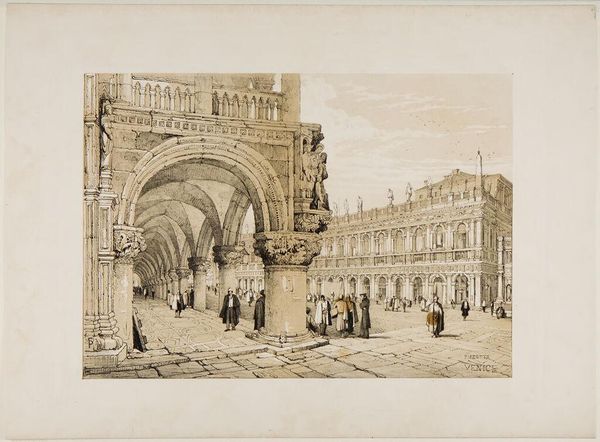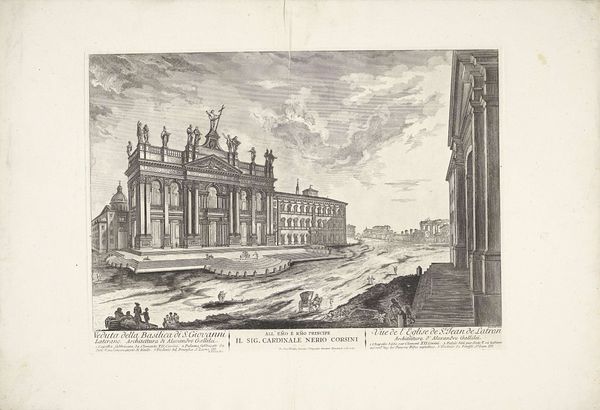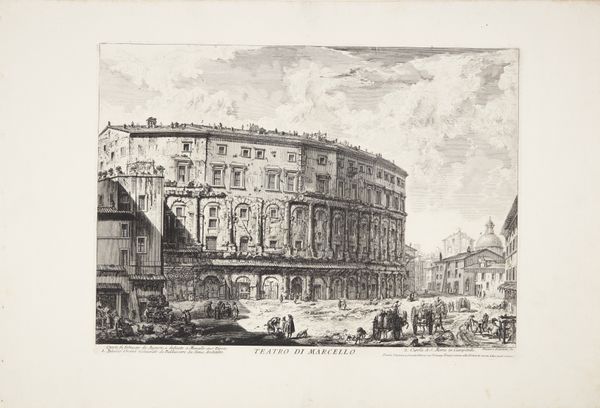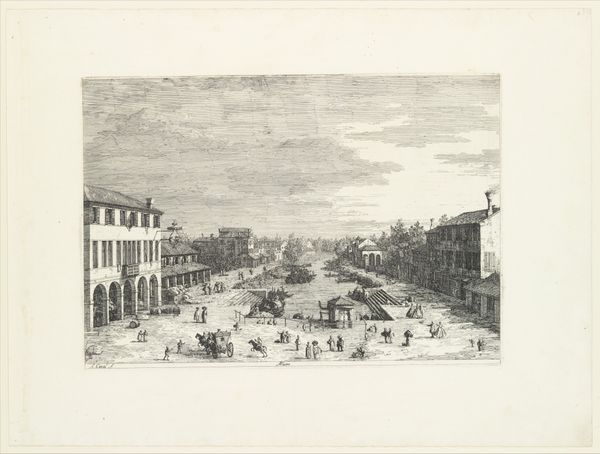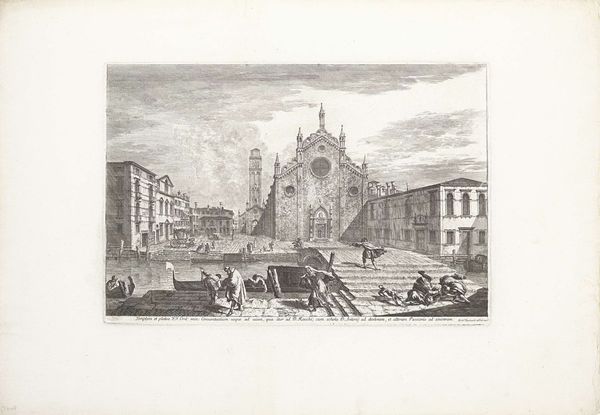
print, engraving
#
venetian-painting
#
baroque
# print
#
landscape
#
cityscape
#
engraving
Dimensions: height 313 mm, width 471 mm
Copyright: Rijks Museum: Open Domain
Michele Marieschi made this print of the Piazza San Marco in Venice using etching, a printmaking technique, sometime before his death in 1743. The process involves coating a metal plate with a waxy, acid-resistant substance, then scratching an image into it with a special needle-like tool. Acid is then applied, biting into the exposed metal to create recessed lines. The plate is inked, and the surface wiped clean, leaving ink only in the etched lines, before being pressed onto paper. Look closely, and you’ll see these incised lines, which give the image its unique character. The controlled, repetitive quality of the etching mirrors the ordered and structured nature of Venice's architecture and social life. Think about the labor involved: the careful preparation of the plate, the precise etching work, and the final printing. This was a painstaking, skilled process, reflecting Venice's status as a center of trade and craftsmanship. The print is not just a depiction of a place, but a record of human labor and technical skill. It challenges our perception of the Piazza San Marco, and our understanding of the relationship between art, craft, and the broader social world.
Comments
No comments
Be the first to comment and join the conversation on the ultimate creative platform.
